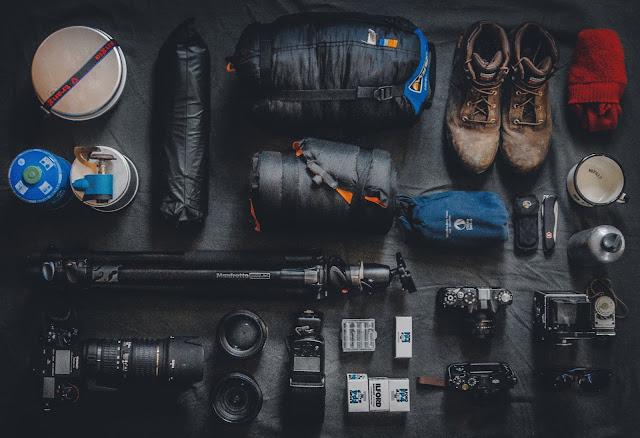 |
| Photo by Alexander Andrews on Unsplash |
Words are living things, they move, they change their sound, they even have their own habitat. We want to hunt them not because we want to kill them but to use them and keep them alive.
DISCLAIMER:No words have been killed or harmed in the making of this article.
Why Word Hunting?
If you are learning English(or any other language) you might have realized that vocabulary is very important. As a teacher and language learner I have seen and heard the different viewpoints on this matter. Some people put a lot of their energy on learning grammar, don't get me wrong, I think grammar is very important and it has its place in language learning. Let me elaborate this a little bit more.Grammar is like a blank structure, a template, where you need to put building blocks(words) in the correct order. If you focus on only learning grammar you end up with a lot of these blank templates that you cannot use, because you don't have any building blocks. On the other hand if you have a lot of building blocks, you can use fully the few templates you have, and better use the new ones you learn.
You need to know that this is only one of the many strategies you can use to learn languages, it works for many people but you need to try if it works for you. This is why we call language learning a process where you need to try different things. Just remember to have fun.
How to go Word Hunting?
Word hunting as a process might be easy but you need to be engaged. Let me explain what I mean by this. If you are a language learner that likes a lot of exposure to the language(anime, sitcoms, music, anime, Korean dramas, anime, and more anime, etc.) this can be a great opportunity to best use the resources that you have available. You're going to find a lot of wild words just hanging around, waiting, even begging to be hunted. As a good hunter you don't allow these words to escape, so you need a way to register or save them. You can write them down on a piece of paper, on a notebook, or digitally in your favorite program or app. I personally use google keep, because I already use it and I don't need to download extra apps.
My word lists look like this:
 |
| I have one list for English words, one for Chinese, and one for Japanese. |
How to Learn Words?
There are many techniques you can use, one of them is spaced repetition aka flashcards. On one side of a piece of paper you put the word you want to learn and on the other side you write the meaning; then you try to remember the meaning or the pronunciation of the word by just seeing it.There are many articles on how to use paper flashcards so I'm not going to go that deep into it.
When I began learning Chinese I already had gotten used to them when learning Japanese, the thing is, that when you make your own flashcards out of paper they can become quite bulky and inconvenient to carry around; that's when I found out about SRS(spaced repetition software). Again, there are many options here but personally I prefer Anki.
These type of apps are very useful and convenient especially if you already use your phone or your computer a lot.
Anki might be a little bit complex for a beginner, but you can make flashcards very easily. Also, there are a lot of video tutorials that you can watch. If you don't like Anki you can make a google search about "flashcards" or "spaced repetition software" there are many different services, so you might need to try which one works according to your specific needs.
When making your own cards remember that you are going to need a dictionary or several of them, internet, or books that give you the meaning of the word.
Here are some tips that you might want to consider when making flashcards:
- Try to put sentences instead of only words. This helps you see the word in context and it's easier to remember it.
- If you make your own sentences that's a plus. But be careful, sometimes words might not be used in the context you are thinking about.
- Try to enhance or highlight the word you are learning. This way you concentrate on the word you want to learn.
- If you are learning a language that uses a different writing system, you might want to use it so that you can learn it faster. This is especially true for Chinese and Japanese, where you need to learn different characters for different words.
- When writing the meaning of the word, try to use your target language if you're comfortable with it. This will help you internalize the meaning.
- You can use images, drawings or audio to help you learn the word.
After some time you'll see that you understand a lot of words, but what if there's a word that doesn't cooperate and refrains from staying in your mind? Forget about it. For some time. When there's a word like this it normally means that is not that common or that you don't see the need to use it. Let it rest for some time, if by any chance you find it again in the future, you can decide if you want to try to learn it again or let it rest for more time.
This has been my experience with word hunting but feel free to share your own experience or ideas when learning new words.

コメント
コメントを投稿